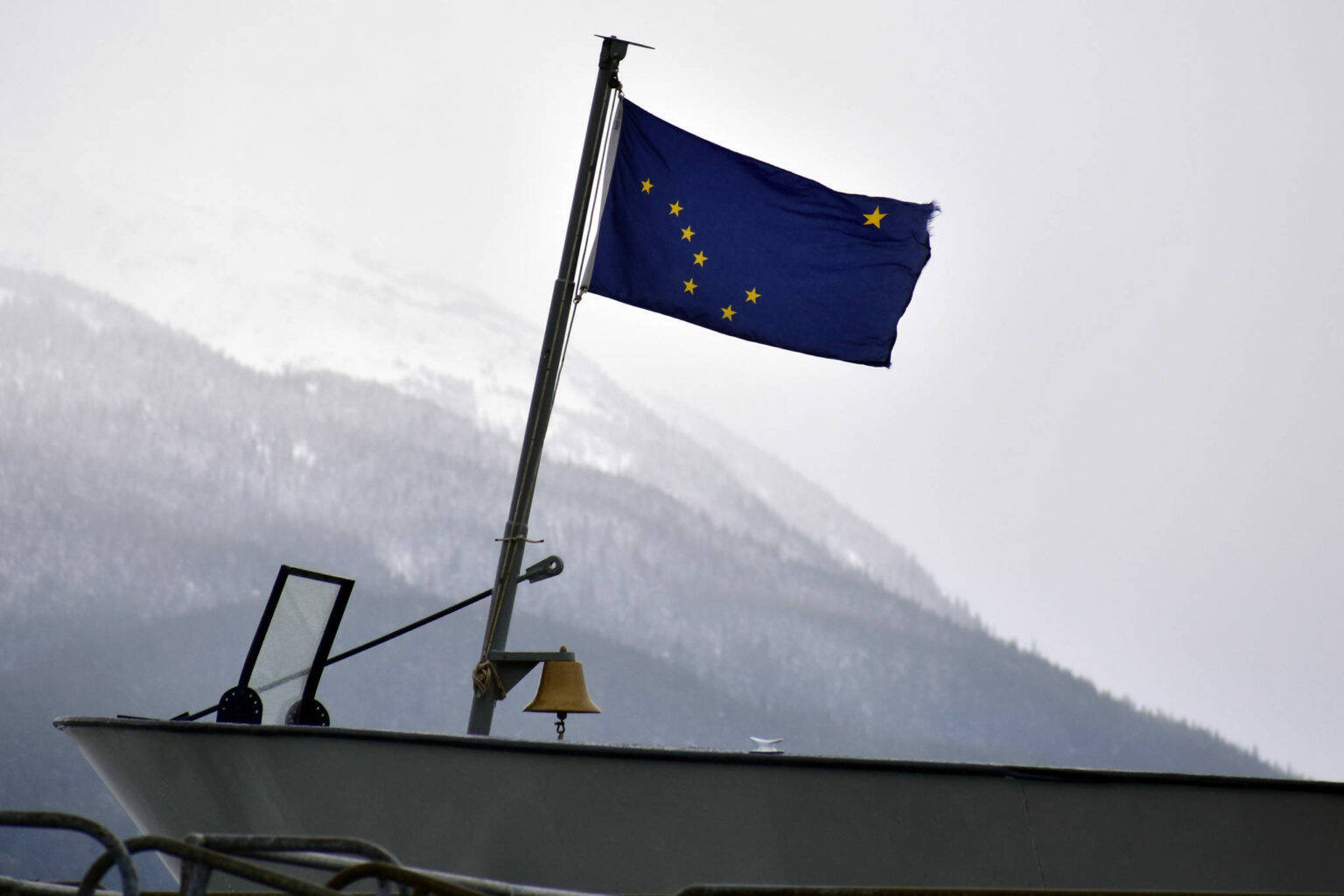Last Friday, the Alaska Department of Transportation & Public Facilities (DOT) announced a new program called “Reimagining AMHS.” According to Gov. Mike Dunleavy, its goal is to “set the stage for predictable, reliable ferry service.”
That should mean restoring it to the level of service we had before he became governor. But to ensure that, he should begin by being honest about why it became unreliable.
“I don’t envision at any time that there would not be a functional and robust ferry service in Southeast, the panhandle of Alaska” he said during an interview at KRBD in Ketchikan in April 2018. Just before before the general election, he promised there was “no plan to hack, cut or destroy” AMHS.
Three months later as governor he proposed a two-thirds cut to the agency’s budget, most of which was enacted. He then tried to “reshape” AMHS into a private enterprise.
Dunleavy wants us to think all that was dictated by a sudden and precipitous decline in oil prices. “In the fall of 2018” he said this week, “oil was selling at a price high enough that state spending levels could be maintained.” But it “dropped significantly later that year,” leaving the state with “a $1.6 billion dollar budget deficit at the beginning of the 2019” legislative session.
Similarly, in August 2019, he said it was “trending at nearly $85” then “plummeted to near $55.”
That’s been his sad but consistent attempt to rewrite history.
A Department of Revenue website tells the truth. The price of Alaska North Slope Crude was $68 per barrel the day he spoke on KRBD. In the fall, it exceeded $80 for only two weeks and was $73 just before the election. It dropped below $60 for two days in late November and during the last two weeks of December, rose slightly to $62 when he announced his budget cuts, and was back to over $70 three months later.
DOT’s “Reimagining AMHS” website is also historically inaccurate. Commissioner Ryan Anderson said the department is only “working to restore AMHS service to pre-pandemic levels.” That allows DOT to ignore Dunleavy’s 2019 budget cuts and instead put all the blame on “inflation, tight labor markets, a pandemic, an aging workforce and fleet, supply chain issues, and outdated technologies.”
What really happened is Dunleavy had to atone for candidate Dunleavy’s fantasy fiscal plan. He promised voters he could balance the budget and give everyone full and retroactive Permanent Fund Dividends while avoiding new taxes and significant budget cuts.
A major flaw in his plan was the claim he could save $200 million annually by eliminating funding for 2,000 state government positions that had long been vacant. He never understood that those positions were purposely not funded to account for vacancies that exist between the time employees leave their jobs and new employees refill them.
Instead of acknowledging mistakes like that, he’s giving us a glossy portrait of contradictions.
First, he was supposedly blindsided by the fall of oil prices after he was elected. But of course, “We know better than to take current prices for granted,” as he said a few weeks before the Russian invasion of Ukraine sent prices to over $100 per barrel. Now those temporarily higher prices “have stabilized the budget.”
The real source of budget stability for AMHS arrived courtesy of Sen. Lisa Murkowski. And for two reasons, he can’t acknowledge that truth either.
Last fall, Congress passed the Infrastructure Investment and Jobs Act. It includes $1 billion for essential ferry service to rural Alaskan communities. And for the first time, Federal-aid highway funds can be used to pay for AMHS operations and repairs.
That’s what Murkowski accomplished by negotiating with Senate Democrats. Donald Trump, however, ripped every Republican who voted for it as “RINOs, sellouts, and known losers!” and labeled Murkowski the “Disaster from Alaska.”
To secure Trump’s endorsement for his reelection, Dunleavy bowed to his demand not to endorse Murkowski. Along with that, he can’t thank Congress for Alaska’s infrastructure lifeline that Trump vehemently opposed.
Dishonesty doesn’t make good policy. But it’s an all too common campaign gimmick. Like the one Dunleavy peddled in 2018. This new one relies on coastal Alaskans believing he sincerely wants to fix AMHS while hoping we forget that he alone broke it.
Rich Moniak is a Juneau resident and retired civil engineer with more than 25 years of experience working in the public sector.

